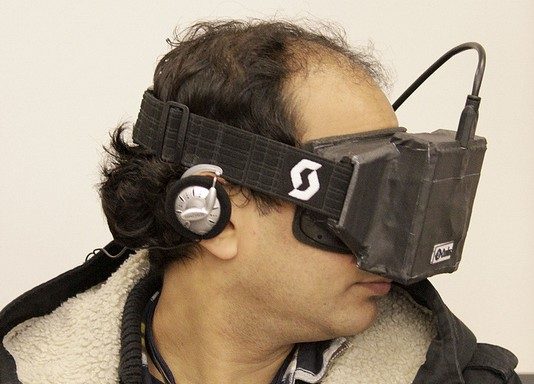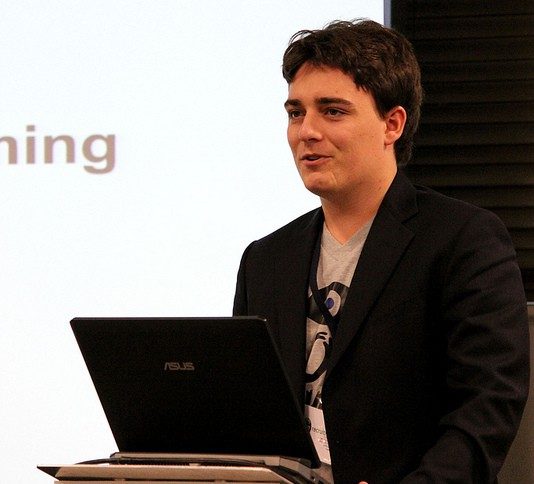
Last week Palmer Luckey took the stage as a keynote speaker at Evolve 2012 in London. The conference is an “event exploring everything that’s cutting edge and innovative in game development – new platforms, new technologies, new business models and new markets.” Luckey, who is the founder of Oculus Inc. and inventor of the Oculus Rift HMD, had the headlining speech on virtual reality.
Here’s the description of Luckey’s speech from the conference website:
Virtual Reality: The Holy Grail of Gaming
Over the years, gaming has evolved from moving abstract blocks of pixels across a flat plane all the way to moving high definition, fully animated characters through vast hyper-realistic synthetic realities. Along the way have been unbelievable advances in gameplay, music, cinematics, multiplayer, input devices, and pretty much every facet of a game you can imagine. One thing that has remained frustratingly static, though, is arguably one of the most important components: the display through which you view the game. Virtual reality technology will allow us to finally step inside the games we love. Palmer will discuss where VR stands today, where we’re going, and how VR will push games to the next level.

While I unfortunately wasn’t able to make the trip, I’ve tracked down three accounts of Palmer Luckey’s virtual reality talk. From the reports I’ve read, it sounds like the talk was not a pitch for the Oculus Rift, but rather a broader overview of why virtual reality has failed in the past, how it can succeed today, and what challenges lay ahead:
PC Games N — Looking ahead: Oculus Rift creator says VR “has the potential to revolutionise”
While it might be fairly easy to port some games to virtual reality devices without too much modification, Luckey believes that creating wholly original titles is likely to be hard work. Nevertheless, it should encourage developers to create titles that are particular to the medium and that make the most of what it offers. This is true for any platform, he says. “The best games for Android were designed with a touchscreen in mind. It was the same thing for the Wii or the DS. I’m not a software developer, so I can’t pretend to know what all the possibilities are,” he goes on, “but there’s a lot of people we’ve talked to who’ve said ‘You know what? I’ve got an idea for an entirely new genre that’s only possible with virtual reality.
Edge — Evolve 2012: Oculus Rift creator Palmer Luckey on why VR is “going to change gaming”
But developers will face serious challenges at first, he warned. The need to render two scenes at once will put pressure on GPUs – stereo rendering is expensive – and a high frame rate is critical to avoid disorientation. While 60fps is currently considered high, though, Luckey says that should be the just the starting point. “High framerates are critical to avoid disorientation,” he explained. “The faster the game runs the easier it is to trick the brain, and developers are going to have to find ways to make hardware perform better.”
Develop — Oculus Rift boss on the key VR dev challenges
Elswehere in his keynote presentation Luckey touched on the differences between AR and VR headsets, insisting the latter must block reality out, rather than tweak it. He added detail on technologies that could compliment VR headsets, such as galvanic vetibular stimulation, where the innards of the human ear are manipulated to trick the body into believing it is really moving..
Alluding to the fact the technology has not yet been confirmed as safe, Luckey joked that galvanic vetibular stimulation has generated “no proof it’s bad for you”.
Predicting that few triple-A studios will initially embrace making VR-only games, Luckey concluded by saying “A reboot from VR is coming. It’s going to change a lot of things; it’s going to change eduction, it’s going to change training, and it’s going to be very big for gaming.”






